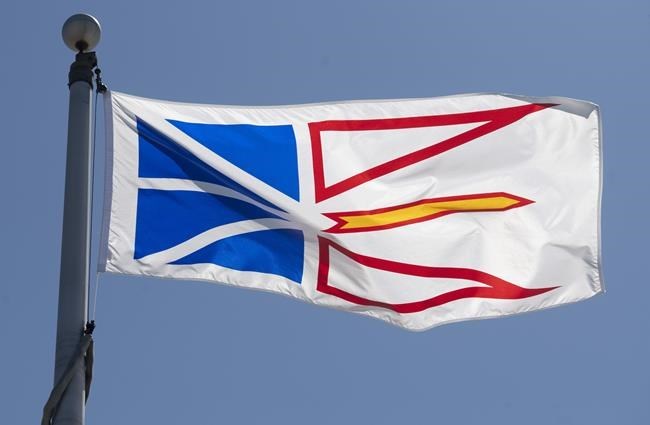ST. JOHN'S, N.L. — Newfoundland and Labrador's new police oversight agency has become just the second in Canada with an explicit mandate to investigate allegations of domestic violence committed by officers, a crime that experts say is too often kept in the shadows.
"It's a virtually unknown area, and the few stats or reports ... we can look at only really scratch the surface of this," said Erick Laming, a University of Toronto doctoral student who studies police accountability.
Newfoundland and Labrador's Serious Incident response Team, or SIRT-NL, became fully operational as of July 5, making it the seventh civilian-led police oversight agency in the country. Its mandate is to investigate "serious incidents" involving police, including death, serious injury, sexual offences and domestic violence.
"In any domestic violence case ... it's difficult for victims to come forward, but that's especially true when the abuser is part of the justice system," SIRT-NL director Mike King said in an interview last week. "That's why it's important for us to be separate and independent from police."
The agency will publish all of its reports and take reports from the public as well as the police, he said.
Nova Scotia's Serious Incident Response Team is the only otherpolice watchdog agency in the country with an explicit mandate to investigate domestic violence accusations made against police. In addition to investigating police in Nova Scotia, the agency is often tasked with investigating police in New Brunswick, Prince Edward Island and, before last week, Newfoundland and Labrador. Its annual reports are among the only sources of data about officer-involved domestic violence in Canada.
They show domestic violence was the fourth most investigated allegation by the agency between April 2012 and March 2020, behind sexual assault, injury during arrest and injury during vehicle pursuit. Of 217 probes in that period, 22 were for domestic violence. Sixteen of those investigations led to charges.
Some experts, including former Supreme Court of Canada Justice Michel Bastarache, suspect those figures are just a tiny glimpse into a much wider problem. Bastarache read over 3,000 claims and conducted 644 interviews with former RCMP officers who said they faced sexual assault and harassment from their colleagues on the force as part of his independent assessor role in thehistoric Merlo-Davidson settlement.
Reached in 2016, the class-action settlement named after plaintiffs Janet Merlo and Linda Davidson paid out more than $125 million to women who faced discrimination, harassment, bullying and sexual assault during their time as RCMP officers.
Many of those women reported being abused by a partner or spouse within the force, Bastarache said in a recent interview. When asked if he thought the RCMP had a problem with domestic abuse, he was blunt: "Oh, yes ... I have a list myself that I've made. I must have close to 100 names (of officers). And within that group, there must be at least 25 that were found guilty of abusing women twice, three times, four times, five times. And they're still there."
Bastarache said the force has an internal grievance process and board, "but it doesn't work," primarily because board members are often police officers themselves or close affiliates. That means complainants are reluctant to report at all, because they fear retaliation and bias, he said. "If a (male officer) is found guilty of assaulting a woman, there is no real penalty," he said. "I saw so many cases where they said, 'OK, you're suspended for three weeks with pay.'"
In an emailed statement, national RCMP spokesperson Robin Percival said between 2016 and 2020, the Mounties internally investigated 136 domestic violence allegations made against officers for breach of the force's code of conduct. Those allegations represent three per cent of allegations of any nature made against officers in that period.
"The RCMP Code of Conduct applies on and off duty, both in and outside Canada. It therefore applies to allegations of domestic violence. As a result, in addition to criminal charges, members face discipline up to and including dismissal from the RCMP," Percival said. "Prior to and since the Merlo-Davidson settlement, the RCMP has been engaged in efforts to address violence and harassment in the organization, including domestic violence, through awareness and training."
Annual reports from the Toronto Police Service show 55 officers were charged under the Police Services Act in 2019, in relation to 68 cases. Domestic assault accounted for 12 of those cases, or 17 per cent.
In St. John's, King said he is aware of the concerns surrounding police investigating and protecting one another, and he acknowledges that his own investigators have police backgrounds.
"We need to have people not only with investigative experience, but significant investigative experience," he said. "And again, at the end of the day, I make the decisions on all cases and whether charges are laid ... and I have absolutely, without question, no connection with police, and never have."
As for whether more police oversight agencies should include domestic violence in their mandate, Laming said that's a complicated issue. "If we added domestic violence to some of these watchdogs, this could significantly increase the caseload and workload for these agencies who already have a bad reputation for taking far too long to complete investigations," he said in an email.
He said the issue might be best handled by some other independent third-party agency. "In either case, this would contribute to much better data collection on officer-involved domestic violence, which we desperately need," he said.
This report by The Canadian Press was first published July 12, 2021.
Sarah Smellie, The Canadian Press

